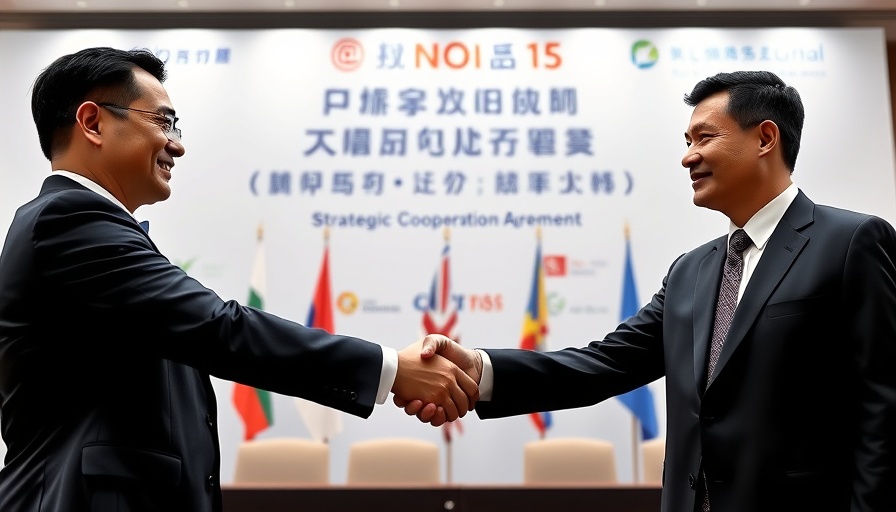
Poland Strengthens Naval Defense Collaborations with Global Partners
At the recent MSPO defense industry exhibition in Kielce, Poland, the Polish Armaments Group (PGZ) announced significant strategic collaborations with two prominent defense firms: Babcock International from the United Kingdom and Fincantieri from Italy. This development signals an important step in enhancing Poland's naval and aerial defense capabilities, aligning with regional security needs in the context of the ongoing geopolitical tensions in the Baltic region.
The Impact of PGZ's Alliance with Babcock
As part of a strategic cooperation agreement, Babcock and PGZ aim to pool their expertise in various defense sectors, especially focusing on naval vessel design, maintenance, and military aircraft sustenance. Babcock has been actively involved in the construction of Poland's Miecznik-class frigates, which are designed to enhance the Polish Navy's operational capacity. The latest extension of this collaboration extends through 2031, ensuring ongoing support for this vital program.
Modernizing the Polish Navy with Key Partnerships
In addition to Babcock, PGZ's memorandum of understanding with Fincantieri marks a further commitment to developing advanced naval platforms, particularly under the Orka submarine procurement project. This initiative aims to combine Fincantieri's technological know-how in shipbuilding with PGZ's local industrial expertise, paving the way for a new era in Poland’s naval modernization efforts.
Regional Security Boost: The Baltic Sea Context
The strategic agreements come at a crucial time when Poland seeks to strengthen its defense capabilities against regional threats. The Baltic Sea, being a critical area for NATO operations, necessitates robust naval assets that can effectively address emerging security challenges. PGZ CEO Adam Leszkiewicz emphasized the importance of cultivating long-term international partnerships to enhance Poland's defense capabilities and contribute to NATO's collective security.
Future Predictions: What This Means for Military Collaborations
Looking ahead, these collaborations not only aim to bolster the Polish military but could also open doors for future international partnerships within NATO. In the evolving landscape of military technologies and collaboration, PGZ's alliances signify a proactive approach to defense readiness and resource optimization, potentially influencing regional defense strategies across Europe.
Insights on the Shipbuilding Sector
PGZ's agreements with Babcock and Fincantieri highlight a growing shift towards enhancing domestic shipbuilding capabilities, reflecting broader trends in national defense. As countries seek self-sufficiency in military manufacturing, partnerships like these may become more common, allowing for optimized defense production across borders while fostering local industry growth.
Understanding the Partnership Dynamics
This collaboration not only emphasizes the importance of technological advancements in defense but also sheds light on various market dynamics that influence global partnerships in the military sector. The blending of expertise from established companies like Babcock and Fincantieri with local industrial capabilities indicates a balanced approach to international defense cooperation.
Conclusion: A Step Towards Strength and Security
The recent alliances formed by PGZ with Babcock and Fincantieri offer promising prospects for Poland's defense landscape. With a stronger naval presence and advanced military capabilities, Poland is positioning itself to better respond to regional security needs. As these collaborations progress, stakeholders within the defense industry must remain engaged to harness the full potential of these initiatives.
As public interest grows in national security matters, staying informed about the impacts of these collaborations is essential for understanding Poland's strategic direction. It's time for every concerned citizen to follow these developments closely and advocate for transparency and modernization in defense policies.
 Add Row
Add Row  Add
Add 




Write A Comment